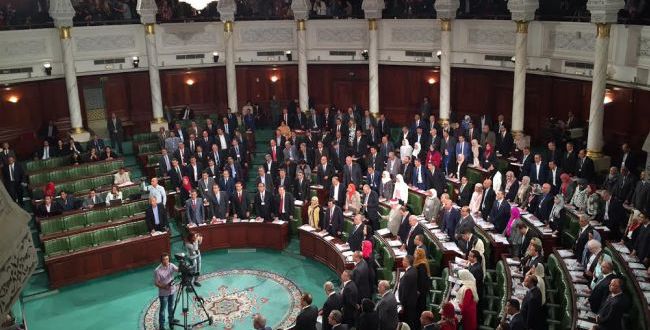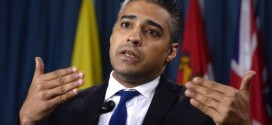The new Tunisian parliament on Tuesday held its inaugural session, a landmark event in the nation’s transition to democracy after the 2011 revolution in the country that fuelled the region’s Arab Spring.
After singing the national anthem, the National Constituent Assembly’s (NCA) speaker Mustapha Ben Jaafar opened the parliament of 217 members elected in October.
“Tunisia has managed to secure a peaceful power transfer in a fluid and civilized manner that will ensure the gradual introduction of democratic traditions”, he said.
After his speech, Ben Jaafar then made way for Ali Ben Salem, the oldest member of the Parliament, who was applauded by fellow political party leaders and parliamentarians invited to attend the ceremony.
Keeping with tradition, Ben Salem presided over Tuesday’s session, and deputies voted for a new speaker of parliament.
Results of the October 26 general election officially declared that the secular Nidaa Tounes party won 86 seats, beating their rivals the moderate Islamist movement Ennahda party, who won 69 seats. Under the Tunisian electoral system, the party with most votes in case there is no absolute majority has a mandate to form the coalition government.
Reports have suggested that the two parties will form a grand a coalition. The Nidaa Tounes party has said that it will not form any government before the second round of presidential voting ends in December – anti-Islamist leader Beji Caid Essebsi leads current officeholder Moncef Marzouki after the first round. Marzouki was elected as President at the end of 2011 under a coalition government led by the Ennahda. He was not invited to Tuesday’s session, Marzouki’s campaign manager said.
Tunisia, the birthplace of the Arab Spring, has avoided bloodshed ravaging its neighbors after the revolution, but face several challenges, including the threat of extremists, social unrest and a weak economy.

 The Arab Democrat The Latest From The Arab World
The Arab Democrat The Latest From The Arab World





